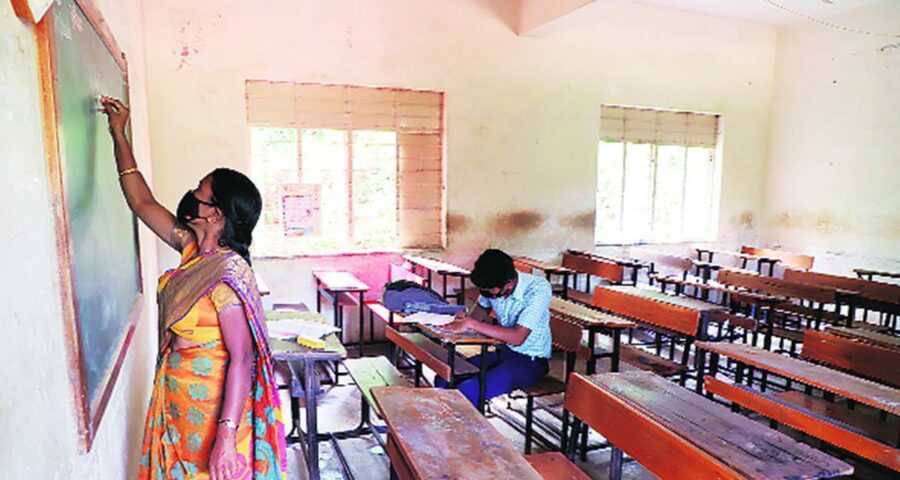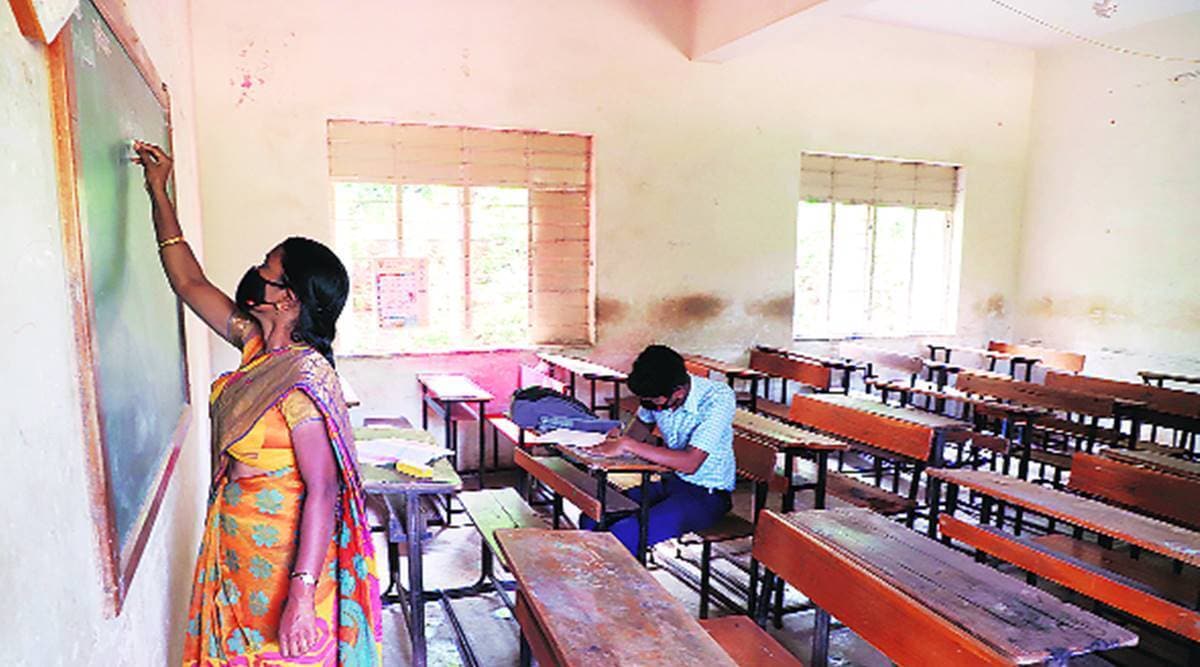According to the researchers, the study was conducted in August 2021 to capture teachers' voices on what has happened during school closure due to the pandemic. It also aimed to recommend what needs to be done once schools reopen.
With primary schools being physically closed across the country since March 2020 – for about 17 months now since Covid-19 broke out in India, a recent study has recommended that the approach to teaching and learning will need to respond not just to the curriculum change but also to the socio-emotional issues of students.
“A variety of teaching-learning materials will be required to cater to learners at different levels in each class. When schools reopen, teaching should be informed by the learning level of each child in the class and not the regular curriculum,” the field study conducted by Azim Premji Foundation noted.
As much as 71 per cent of the 363 primary school teachers from across 18 districts in five states — Karnataka, Rajasthan, Madhya Pradesh, Uttarakhand, and Chhattisgarh — felt that specific activities and processes to make students comfortable in the initial days of schooling “would go a long way to address socio-emotional concerns.”
The examples they pointed out included activities on sharing their experiences during school closure through dialogue, drawing, writing, drama, and play, and displaying any artifacts or projects they created. Meanwhile, 53 per cent of the respondents underlined the importance of counselling as well.
According to the researchers, the study was conducted in August 2021 to capture teachers’ voices on what has happened during school closure due to the pandemic. It also aimed to recommend what needs to be done once schools reopen.
Explaining the impact of school closure on students in lower primary schools, that are yet to reopen in Karnataka and several other states, a teacher said that children have forgotten what they have learnt but have been promoted to higher classes. “It will be difficult for children to cope with the curriculum of higher classes all of a sudden. It is sad to see children who are now in class 5 struggling to read simple sentences,” a teacher in Karnataka told the research team.
This has led to another major highlight from among the findings of the study — that 96 per cent of the teachers wanted children to be assessed on abilities from the previous classes when schools reopen.
Further, 96 per cent of the teachers also favoured changes in the curriculum to be able to deal with the reality of the loss of learning. “The need to focus on foundational literacy and numeracy in the daily timetable was emphasised by 61 per cent of the teachers. Around 74 per cent of the teachers favoured a reduction in the curricular load and the need to map foundational abilities onto the curriculum so as to focus only on such abilities that they recognised to have been most affected,” the study highlighted.
Other major findings of the study titled ‘Clear Voice of Teachers’ were:
56% respondents: Initial teaching-learning should focus only on recovery of learning loss
57%: Changes in teaching-learning processes necessary
48%: Diverse teaching-learning materials to cater to students’ needs are inevitable
68%: Need support with teaching-learning materials
81%: Continuity of learning must be maintained despite continued disruptions that might occur from local outbreaks
Source: Read Full Article


